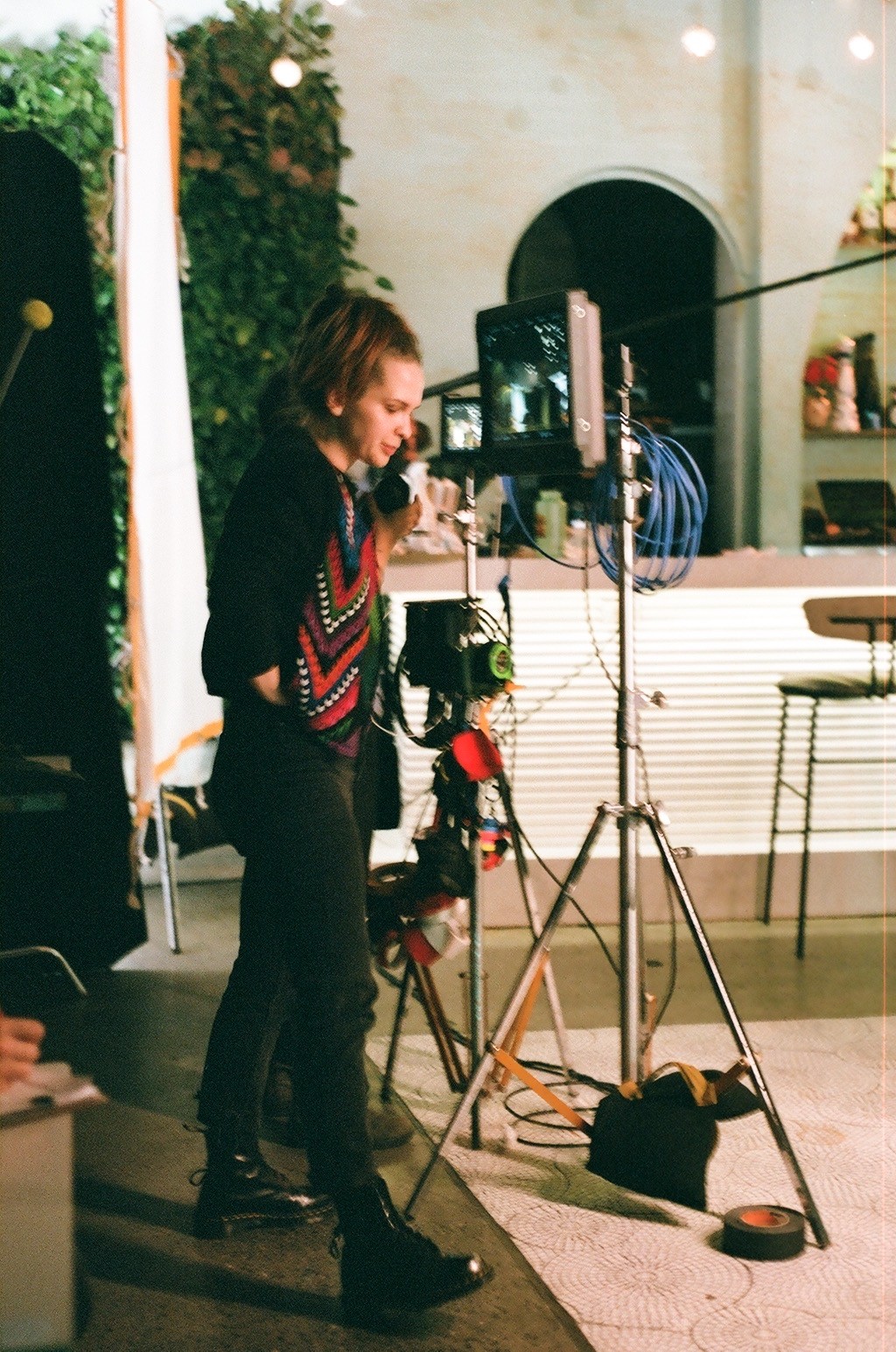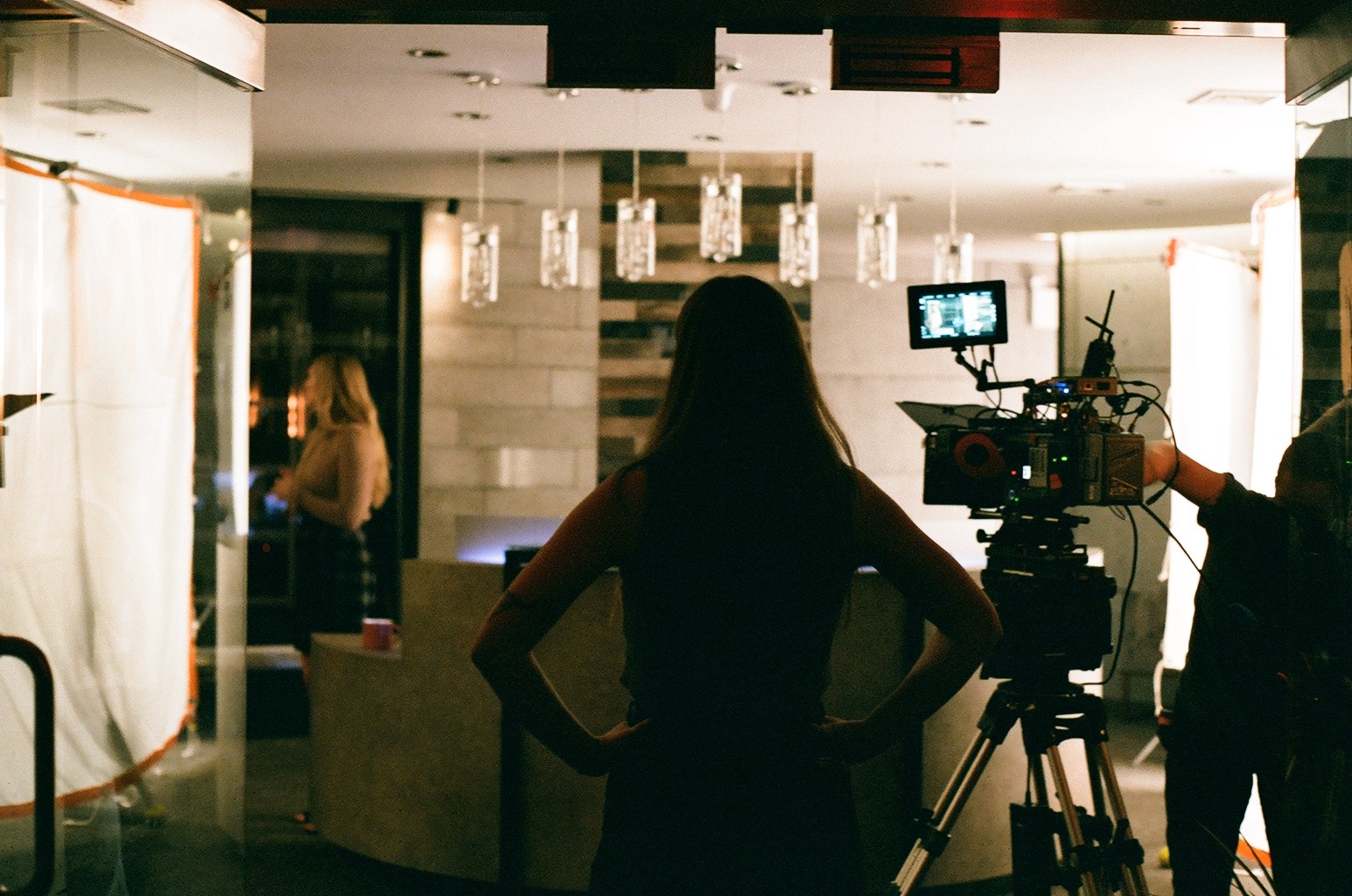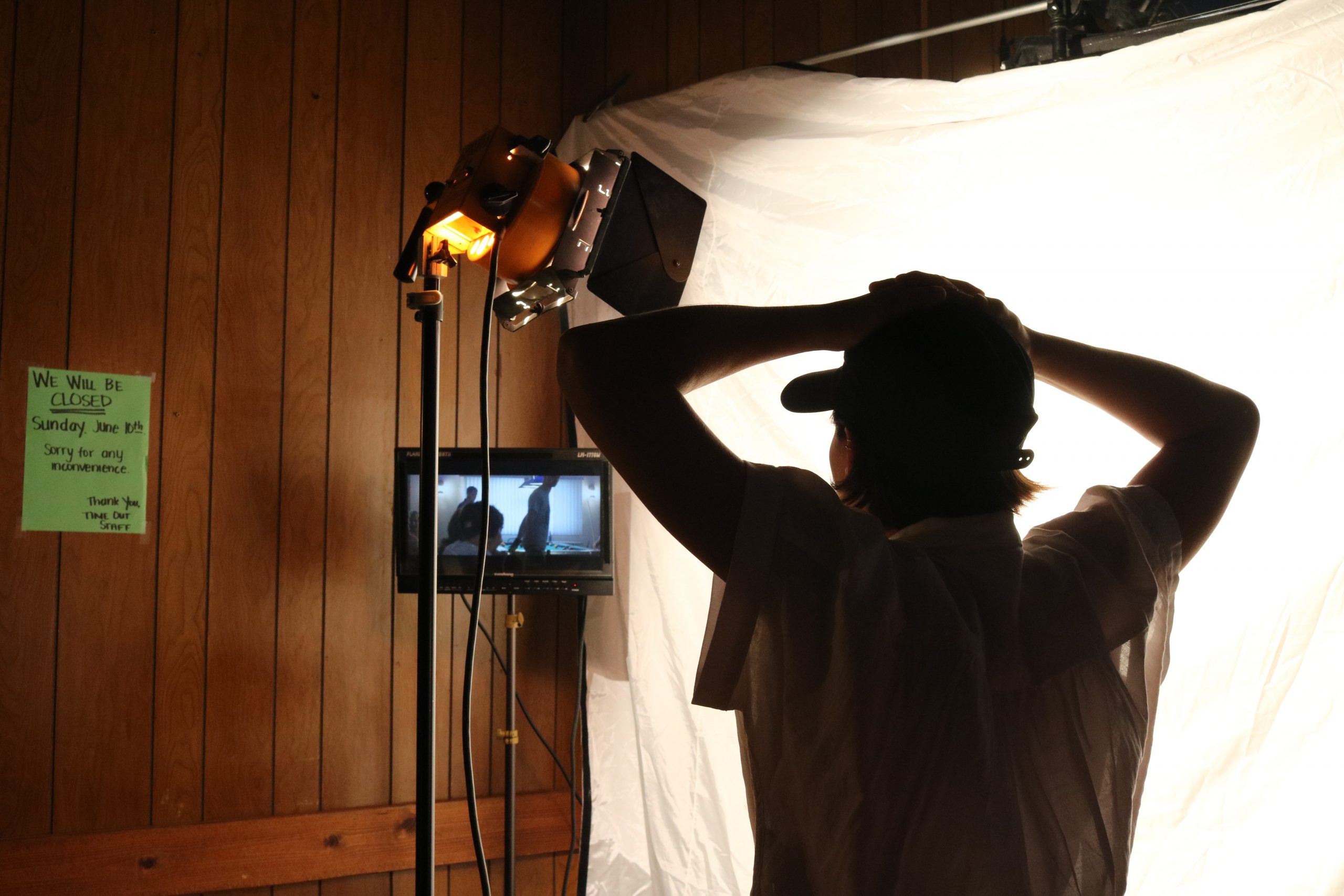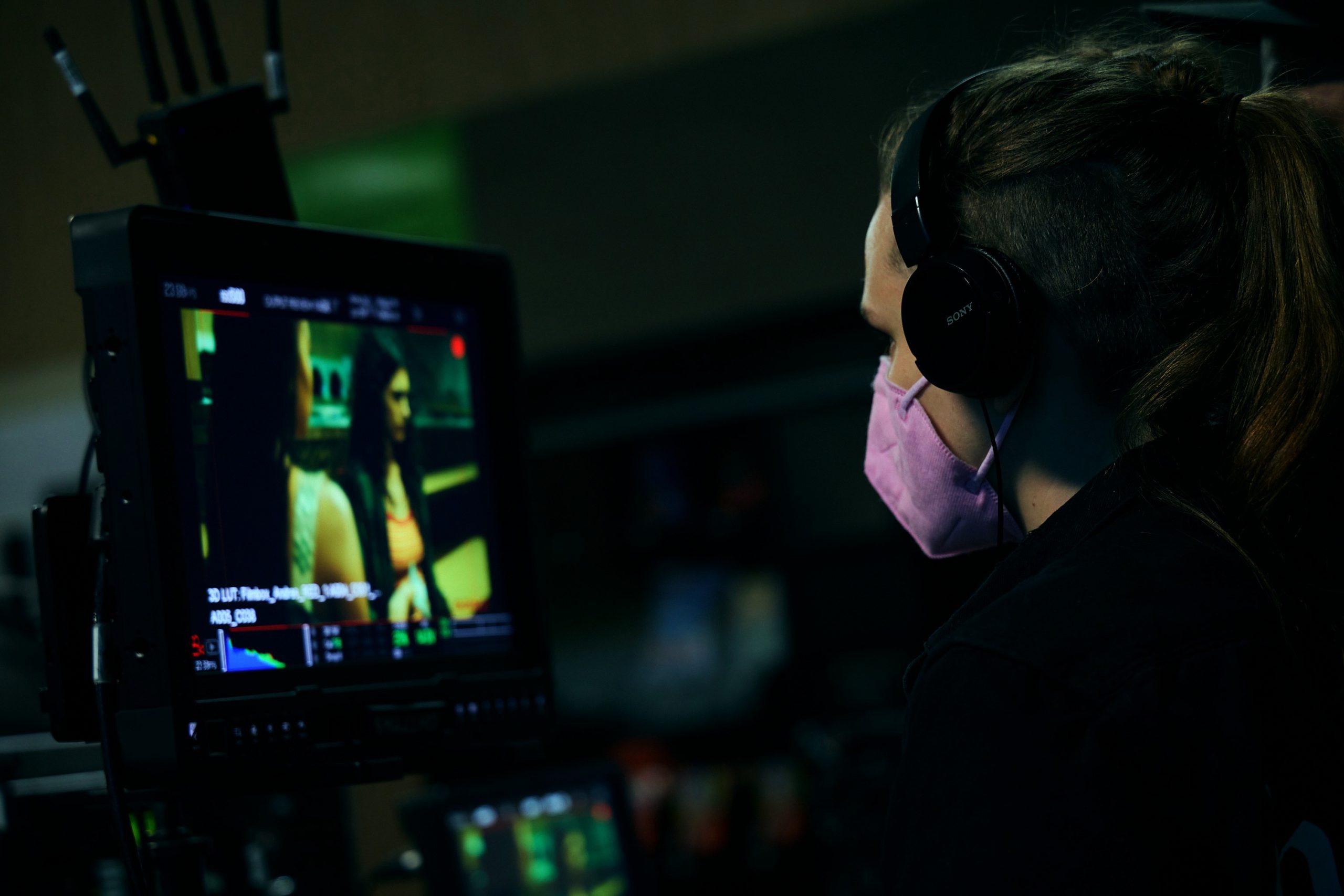

Today we’d like to introduce you to Aliza Brugger.
Hi Aliza, can you start by introducing yourself? We’d love to learn more about how you got to where you are today.
I attribute much of my career as an artist to my siblings and my upbringing on a small, working-class farm in rural Nebraska. In the chaos of our overpacked household and tiny farm that was always on the brink of collapse, my siblings and I were masters of entertaining ourselves, making play out of the endless farm work, and wreaking havoc all over the prairie in our small pockets of freedom. This time fueled my journey as a storyteller.
My mom was insistent that we succeed in school, and we eagerly accepted that challenge, but with our parents’ time consumed by work, much of our education was self-guided. We did our schoolwork, chores, piano lessons, reading, and creating largely on our own. Our unregimented upbringing gave me the courage to navigate uncharted territories and the confidence to pursue a life as an artist.
After graduating from the University of Nebraska in Lincoln, where I pursued film studies and literature, I moved to New York City to receive my MFA in film from Columbia University. I moved to Los Angeles toward the end of the program in order to dip my toes into the industry before graduating. Since then, I’ve been living and working as a freelance filmmaker. I’ve had the privilege to write and direct features, pilots, commercials, music videos, and branded content.
I’m sure it wasn’t obstacle-free, but would you say the journey has been fairly smooth so far?
It has been a very bumpy road. There are two struggles that I spend a lot of my time confronting–one financial, one mental.
I finished school during a pandemic and graduated into a writer’s strike, so quite literally, surviving has been the most immediate and present challenge. However, in a lot of ways, it’s also been the push I’ve needed to advance my career. On the one hand, having the financial freedom to focus on my own work would have been a luxury I can’t even imagine. On the other, I’ve had a very intense drive to find work because I don’t really have any other option. This has led to some really great projects and each year, I write and direct more and more frequently, and I’m so grateful for that.
Making space for myself and making my voice heard have also always been a struggle. The creative world is filled with clashes and confrontation, and fighting for myself and my vision has never been easy, especially when I felt like I didn’t belong in the space. Being queer and non-binary made it difficult to feel at home in my conservative, rural environment, and later, being a working-class, first-generation college student made it difficult to find my place in the academic world and, later, the industry itself. My solution to this problem has been to write and direct as much as possible so that I begin to trust myself and so that the loudest, clearest voice in my head is my own. With each shoot, collaboration, and script, my vision and voice become stronger and easier to fight for.
Thanks – so, what else should our readers know about your work and what you’re currently focused on?
I am an award-winning director/screenwriter based in Los Angeles, originally from rural Nebraska. I received an MFA in film from Columbia University where I wrote and directed films that have screened internationally. In addition to my narrative work, I have directed commercials, music videos, and web series. I am most known for and most fulfilled when my work explores class, queerness, and gender issues in rural USA. I also love playing with surrealism and the subconscious.
Outside of my work itself, I’m very proud of my education. My siblings and I are first-generation college students, so to have been accepted into an Ivy League school to pursue an advanced degree despite having fewer resources than many was an incredible feeling. I applied to schools all over New York and Los Angeles and was accepted into all of them, including AFI. Recently, I was holding rehearsals in a space at AFI for an upcoming film, and I realized that the last time I was there was when I was interviewing with the directing faculty. I felt so proud during this full circle moment when I realized that the place I once applied to learn has now become a part of a film I was being paid to write and direct. It was a really special experience. I’ve been creating and telling stories since I was a kid, but now, every time I’m on set, I’m overwhelmed with pride and gratitude that it’s become my career.
Within my work itself, I’m very proud of my ability to connect my audiences to the characters on screen. As I mentioned, my goal as a filmmaker is to create empathy, so I aggressively place my audiences in the shoes of my characters in order to truthfully explore the pain and joy of people different than ourselves in a way that hopefully unites us. I’m also very proud of my ability to actualize the subconscious. When my characters are enduring something that we can’t see, I have found successful ways to visualize their experience, and I believe it’s one of my strongest and most interesting skills as a storyteller.
I believe this is what sets my stories apart from others is the rural upbringing that played a significant role in my decision to be an artist and fuels the stories that I tell, which in mainstream cinema are quite unexplored. My unique lens allows me to share a part of myself, to critique, question, honor, and elevate my roots.
In terms of your work and the industry, what are some of the changes you are expecting to see over the next five to ten years?
That is a very big question in the world of filmmaking, especially with the advancement in AI technology. It’s easy to be scared of these changes, and of course, to an extent, I am. However, when movies ceased to be silent, filmmakers panicked and believed the industry would die if we added sound. When movies began to be shot digitally instead of on film, we panicked again, but the industry continued. Now, with AI, there’s a bigger and perhaps more justifiable reason for panic. Nonetheless, I try to lean on hope as often as possible, and I do have hope that human audiences will demand human stories from human filmmakers who have lived through the pain, joy, trauma, grief, and love that unites us and cannot be replicated through algorithms.
Contact Info:
- Website: www.alizabrugger.com
- Instagram: @aliza.brugger
- Other: https://vimeo.com/434848460








Image Credits
Andres Solorzano
Macy Olson
Eric Fischer














